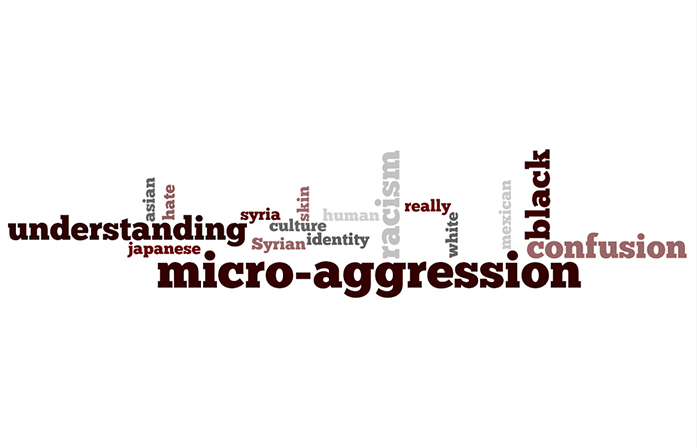By Tessa Soloman
[email protected]
When I was young, my mother chanted a special rhyme to heal any injury. Caressing a burnt finger or scraped knee, she sang, Sana, sana, colita de rana, si no sanas hoy, sanarás mañana … heal, heal, little tail of the frog, if you don’t heal today, you’ll heal tomorrow.
I used it to relieve the ache of boys who called me ugly and friends who forgot my birthday. Even if the old rhyme didn’t comfort in the moment, it reminded me I would sting a little less tomorrow.
As I grew up, I learned its magic had limits.
“So your family was born knowing how to make bombs?”
I had just exited my 11-grade social-studies class. The hallway buzzed with the babble of students, but his question sliced through the noise.
“Excuse me?” I asked, stunned.
“You said you were Syrian, so I figured,” he continued with a chuckle.
As part of our “cultural awareness” unit, I had presented my family’s heritage. I explained how my mother was born in Puerto Rico, moving to Brooklyn when she was 10. My father’s parents fled Syria under religious persecution, settling in eastern Pennsylvania.
They escaped Syria’s razed villages to a country that discriminated against them. They persevered against that, too, which always filled me with pride.
Daily Iowan Arts Reporter Tessa Solomon sat down with Linda Kroon, the director of the Women’s Resource and Action Center at the UI to talk about micro-aggression and how it can be combated. (Audio compiled by Tessa Solomon & edited by Lily Abromeit)
Now that history was the fuel of a joke. When I didn’t laugh, he moved on, merging into the mass of bodies. My mother’s spell couldn’t remedy my boiling anger and confused shame. What in their story equaled terrorists?
This was not my first experience with cultural insensitivity, but it was the most vicious at that point. Many people are ignorant of the effect of their comments. (You’re Spanish? But you’re so pale.) I eventually learned the term for comments like those is micro-aggressions.
Micro-aggressions are oral and behavioral acts of discrimination. They’re usually unintentional belittling of race, gender, or sexuality.
“It’s more like a paper cut than like a blow to the head,” said Linda Kroon, the director of the Women’s Resource & Action Center. “The problem with the paper cut is that these micro-aggressions are occurring kind of chronically. Each individual one doesn’t seem like a big deal, but when you add up the cumulative effect, it is.”
Kroon is one of the presenters for the upcoming workshop Unmasking Micro-aggressions & Learning Cultural Humility.
The workshop, led by a team of specialists, aims to teach participants how to identify and combat micro-aggressions.
It would have been a nice addition to my high school’s “cultural awareness” unit, and I think Iowa City will only benefit from it. Cultural humility is a nationwide concern, with instances of it prevalent on campus.
It’s good you hang out with us; you make us look more cultured, was not something I expected to hear at a liberal college.
“I think students and faculty have an idea of privilege that they don’t realize and they say hurtful things that are commonplace,” Tracy Peterson, the workshop leader and the director of Diversity Programs and K-12 Outreach in the College of Engineering, told me.
You can’t fight every micro-aggression, but you can grow a thick skin. Valuable advice I was given but unsatisfying. Why should anyone accept remarks that dehumanize or disrespect their culture? Why should I have to force a smile and be expected to heal my own indignation?
A quick, quiet song cannot mend every wound. This workshop is not a swift fix, either, but it is a valuable opportunity free for any student. It teaches the work necessary to cure cultural insensitivity: effort, awareness, and a willingness to grow.
Unmasking Micro-aggressions & Learning Cultural Humility
When: 2-5 p.m. Friday
Where: 2520D University Capitol Center
Admission: $30 for the public, free for students
Register online before at the UI School of Social Work website



